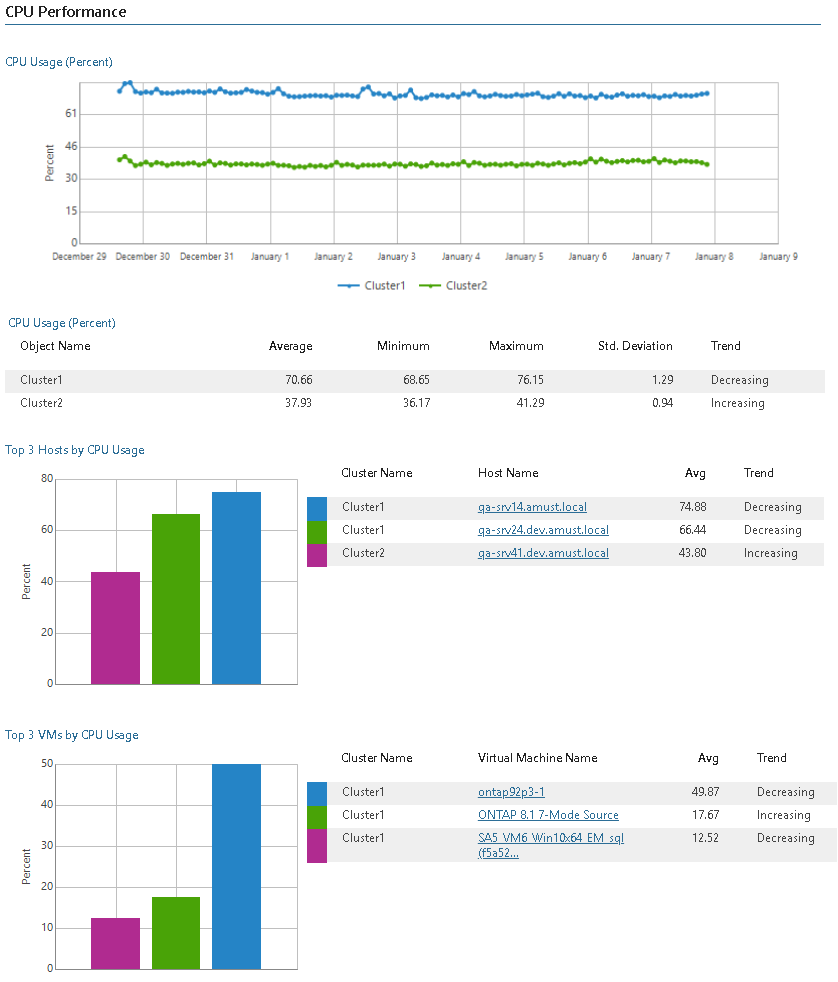 This is an archive version of the document. To get the most up-to-date information, see the current version.
This is an archive version of the document. To get the most up-to-date information, see the current version.Multiple Clusters Performance
This report aggregates historical data and shows performance statistics for selected clusters across a time range. The report features a predefined list of performance counters and allows you to report on memory, CPU, disk and network usage.
The report shows tables and performance charts with resource usage statistics for each cluster included in the report scope, lists top resource consuming hosts and VMs, and calculates resource usage trends for them.
|
|
Use Case
The report provides an overview of hardware resource consumption across your clusters. This information may help you identify clusters with performance issues, balance workloads, right-size resource provisioning, redefine DRS settings and optimize cluster overall performance.
Report Parameters
You can specify the following report parameters:
- Scope: defines a virtual infrastructure level and its sub-components to analyze in the report.
- Interval/Start Date - End Date: defines the time period to analyze in the report. Note that the reporting period must include at least one data collection session for the selected scope. Otherwise, the report will contain no data.
- Top N: defines the maximum number of hosts and VMs to display in the report output.
- Counters: defines a list of performance counters to analyze in the report.
- Business hours from - to: defines time of a day for which historical performance data will be used to calculate the performance trend. All data beyond this interval will be excluded from the baseline used for data analysis.

